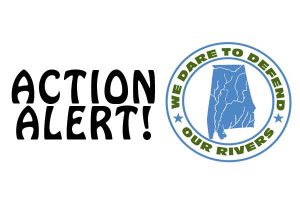Take Action Now to Protect Drinking Water for 2.6 Million Alabamians!
In February of 2017, the President signed an Executive Order calling on the EPA Administrator and the Assistant Secretary of the Army for Civil Works to review the Clean Water Rule (also known as the Water of the U.S. Rule) and to propose a rule to rescind or revise the Clean Water Rule. The notice for public comment went out in July and comments are due by Wednesday, September 27th.
Clean Water is essential to our health, vital to healthy communities, and necessary for a robust economy. We rely on these small streams for drinking water and these wetlands to protect our communities from floods. Craft brewers, outdoor recreation businesses, and other small businesses need clean water to succeed. Wildlife depends on the habitat these water bodies provide. The fact is – anyone who needs clean water, which is everyone, must make sure these small streams and wetlands are protected.
We have heard from our national partners that almost 200,000 comments have already been received, but we need even more. Let’s make sure they receive plenty of comments from Alabamians calling on the importance of protecting headwater streams and wetlands. Rescinding this rule threatens isolated wetlands and more than half (54%) of the stream miles that supply water for public drinking water systems for the 2.6 million people in our state.
What is the Clean Water Rule?
Two years ago, the Clean Water Rule was developed after extensive scientific analysis and millions of citizen and stakeholder comments and is designed to protect ALL our waters from dangerous pollution. Over the decades since the Clean Water Act was passed, there has been confusion over which waters are protected by the law. As we have become more knowledgeable about the important role wetlands play in our ecosystem and how important headwater streams are to the overall health of downstream waters, the scope of the Clean Water Act has come into question. This confusion, coupled with multiple differing court decisions led the EPA, in 2015, to develop the Clean Water Rule to further clarify what waters are covered under the protections of the Clean Water Act. This does not change the original Clean Water Act, but rather clarifies language about which waters are covered. Isolated wetlands and small intermittent streams, such as many of the headwaters of our major river systems, are specifically in question. Now the new administration is proposing to go back to the time of confusion before the 2015 Clean Water Rule, which will leave many of these important waters unprotected.
Why do we need the Clean Water Rule?
When we think about Alabama’s water resources, we know that rainfall moves from the land into our creeks and streams, into bigger streams, into main stem rivers and on down to the Mobile Bay and Gulf of Mexico. On the journey, it also runs across our yards, our driveways, the parks where our children play, the fields where our food grows and sometimes even into our basements! There is no point in this cycle that I would want to take a chance on that water not being covered by the protections of the Clean Water Act. Repealing the Clean Water Rule puts us all at risk and we are not willing to take that chance.
How you can help:
Send you own comments to the EPA through this link:
https://www.regulations.gov/comment?D=EPA-HQ-OW-2017-0203-0001
Feel free to copy and paste this letter, adding your own personal details.
SAMPLE LETTER
DATE
Submitted electronically at www.regulations.gov
RE: Docket ID Number: EPA-HQ-OW-2017-0203: Comments on the Repeal and Replacement of the 2015 Definition of Waters of the United States, Federal Register, Vol. 82, No. 143 (July 27, 2017)
Dear Administrator Pruitt and Mr. Lamont:
On behalf of [your organization name if submitting as a group], I submit this letter in strong opposition to the Environmental Protection Agency’s (EPA) and Army Corps of Engineers’ (Corps) proposal to repeal the 2015 Clean Water Rule.
[Insert a paragraph about you or your organization to make it more personal]
Two years ago, the Clean Water Rule was developed after extensive scientific analysis and millions of citizen and stakeholder comments to provide clarification of the protections of important waterways that supply drinking water for millions of Americans. Rescinding this rule threatens isolated wetlands and over half (54 percent) of the stream miles that supply water for public drinking water systems for 2.6 million people in Alabama.
Alabama has more freshwater biodiversity that any other state in the nation and more than 10% of the freshwater that flows through the United States flow through Alabama. Our rivers and streams are an integral part of our lives and our economy. Over half of Alabamians get their drinking water from rivers and streams. Many rural and low-income Alabamians help supplement their food supply with fish from local creeks. It is essential that all streams are covered by the Clean Water Act because water flows downstream and, as a water rich state with many areas prone to flooding, water flows across lands, crops, and yards that are subject to human contact.
The proposal to rescind the CWR and replace it with the pre-existing scheme is based on three primary rationales: prevention of water pollution, ensuring regulatory clarity, and providing due deference to the states. The proposal provides little to no factual proof that the plan would accomplish its goals.
Enforcing the pre-2015 scheme would not preserve water quality. The pre-2015 scheme has repeatedly failed to restore and maintain U.S. waters. According to EPA reports, only 20% of waters could be classified as having “good quality.” Meanwhile, we have lost 50% of America’s wetlands, and the number of endangered aquatic species continues to grow. Consequentially, it cannot be said that the status quo prevents water pollution better than the Clean Water Rule.
The proposal argues that rescission is necessary to provide regulatory clarity. It alleges that the Clean Water Rule was substantively unclear in its definition. It also argues that rescission is necessary to prevent a series of differing court decisions that could confuse the public. In fact, the ambiguity of the status quo is the very motivation behind the Clean Water Rule. The definition of waters of the U.S. was so unclear prior to 2015 that the public filed 1.5 million comments offering opinions and recommendations for a new definition. If the administration truly desires clarity for the public, recodification is not a reasonable means to achieve it.
Water is a precious natural resource, critical for industry, agriculture, power generation and other sectors in our economy. The 2015 definition of waters of the U.S. helps safeguard those attributes of water that contribute to its economic usefulness to humans as well as its biological importance to animal and plant life. It is obvious that the proposed return to the pre-2015 regulatory regime will not provide any of the intended economic benefits identified in Administrator Pruitt’s statement on the repeal of the 2015 rule.
The repeal of the 2015 rule would impair the ability of the EPA and the ACE to fulfill the objectives of the original act with regards to maintaining the chemical, physical and biological quality of water resources in the United States. Its stated goal of returning power to the states, will instead allow the federal government to deflect its regulatory responsibilities as laid out in the Clean Water ACT.
For these reasons, we/I oppose the recodification of the pre-2015 regulatory regime and oppose any attempts to repeal the Clean Water Rule.
Respectfully submitted,
[your name]
SOCIAL MEDIA
You can also share this issue on social media using the following sample posts:
- #CleanWater is essential to health. @EPAScottPruitt and @POTUS will put our health at risk. Don’t let them. #DefendWater [Link to your action or the docket]
- Repealing the Clean Water Rule puts polluter profits before public health. #DefendWater today. Send a message to @EPAScottPruitt [Link to your action or the docket]
- Repealing the Clean Water Rule could make things worse for communities already lacking access to clean #drinkingwater. #DefendWater [Link to your action or the docket]
- We have less than a week to #DefendWater.The new administration has proposed eliminating the clean water rule which protects streams, wetlands, and drinking water throughout the nation. Don’t let them get away with this – make sure they hear your voice. Send a message today. [link to your action or the docket].
- Ephemeral streams connect to downstream rivers. If the streams aren’t protected, the rivers (& drinking water for millions) will not be protected. This is what is at stake as if we let the administration eliminate the #CleanWaterRule Send a message today. [link to your action or the docket].


